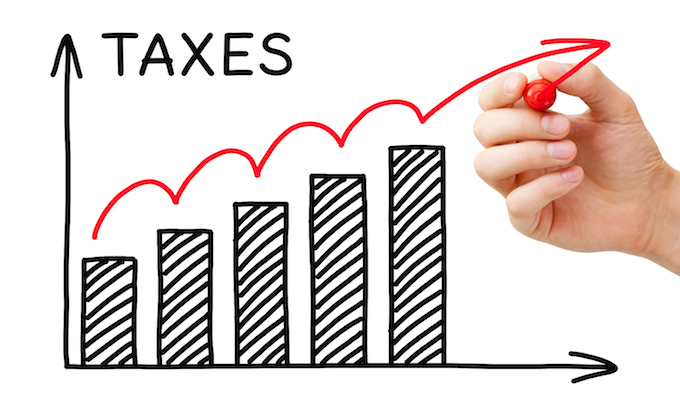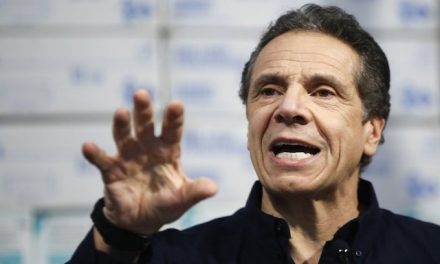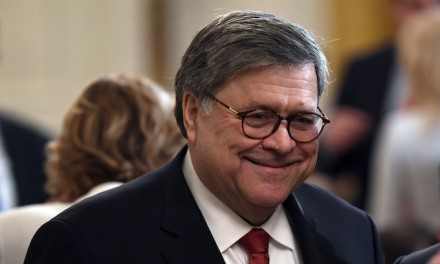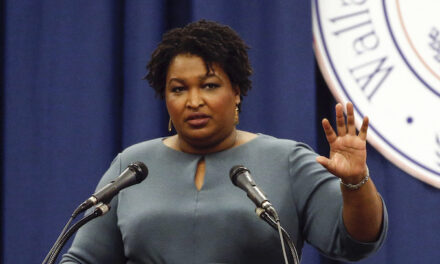New Jersey Gov. Phil Murphy and other top lawmakers said Thursday that they will raise taxes on those who earn more than $1 million annually and send tax rebates to hundreds of thousands of families, hailing it as a victory for the middle class.
The deal is also a major political win for Murphy, who campaigned on a progressive platform and has proposed the “millionaires tax” for years but faced opposition from lawmakers within his own party.
“We do not hold any grudge at all against those who have been successful in life,” Murphy said at a Thursday morning news conference in Trenton, flanked by Lt. Gov. Sheila Oliver, Assembly Speaker Craig Coughlin, and Senate President Steve Sweeney. “But in this unprecedented time when so many middle-class families and others have sacrificed so much, now is the time to ensure that the wealthiest among us are also called to sacrifice.”
Sweeney, who resisted the tax in recent years, acknowledged that his turnaround was a surprise to some.
“I bet a lot of you didn’t expect to find me here today,” he said during Thursday’s announcement. “And you know, I’m surprised I am. … But the pandemic hit, and things have changed. And we have to face the reality that a lot of families are hurting.”
Murphy and Sweeney credited Coughlin with resurrecting the idea and moving it forward this week.
Under the plan, the marginal tax rate will increase from 8.97% to 10.75% for households earning more than $1 million annually. The deal will also give tax rebates of up to $500 to families with at least one child who earn less than $150,000, or less than $75,000 for single parents. The tax will go into effect with this year’s budget, while rebate checks will be based on next year’s tax filings.
The plan is expected to raise an estimated $390 million, with the rebates costing about $325 million. Murphy said the revenue will represent an “investment” in the middle class, and that any leftover money would be put into school funding, healthcare, housing, and more.
Murphy said lawmakers would revisit whether to continue the rebates next year, but that he would like it to be an annual program.
State lawmakers have been deadlocked for years over the millionaires tax, which was passed numerous times by a Democratic-controlled legislature under former Republican Gov. Chris Christie. Christie vetoed the tax each time.
Murphy has called for the tax three times since taking office in 2018, most recently in his budget address earlier this year.
The Democratic-controlled legislature has twice rejected the proposed tax since Murphy took office, saying President Donald Trump’s federal tax overhaul had already slammed the state’s residents through the loss of property tax deductions.
The New Jersey Business & Industry Association criticized Thursday’s announcement, saying in a statement that the proposal is “undermined” by hikes for tolls and gas, and other taxes included in Murphy’s proposed budget.
“Our taxpayers need real tax reform that includes property tax relief, while this does not really improve our overall affordability crisis or remove us from the edge of our fiscal cliff,” the group said in a statement.
The hike would offset part of what Murphy has said is a projected $5 billion shortfall in revenue compared with the budget he scrapped earlier this year in the wake of the pandemic.
Murphy and state lawmakers had previously agreed to extend the current fiscal year from June 30 to Sept. 30.
___
(c)2020 The Philadelphia Inquirer
Visit The Philadelphia Inquirer at www.inquirer.com
Distributed by Tribune Content Agency, LLC.
—-
This content is published through a licensing agreement with Acquire Media using its NewsEdge technology.



















Recent Comments